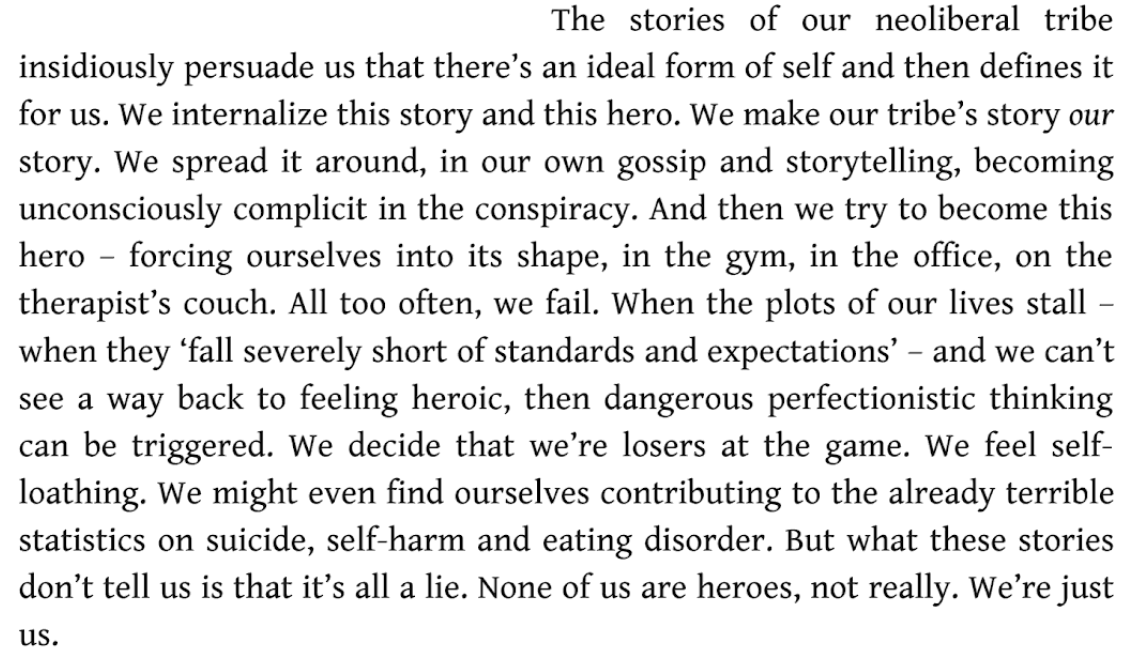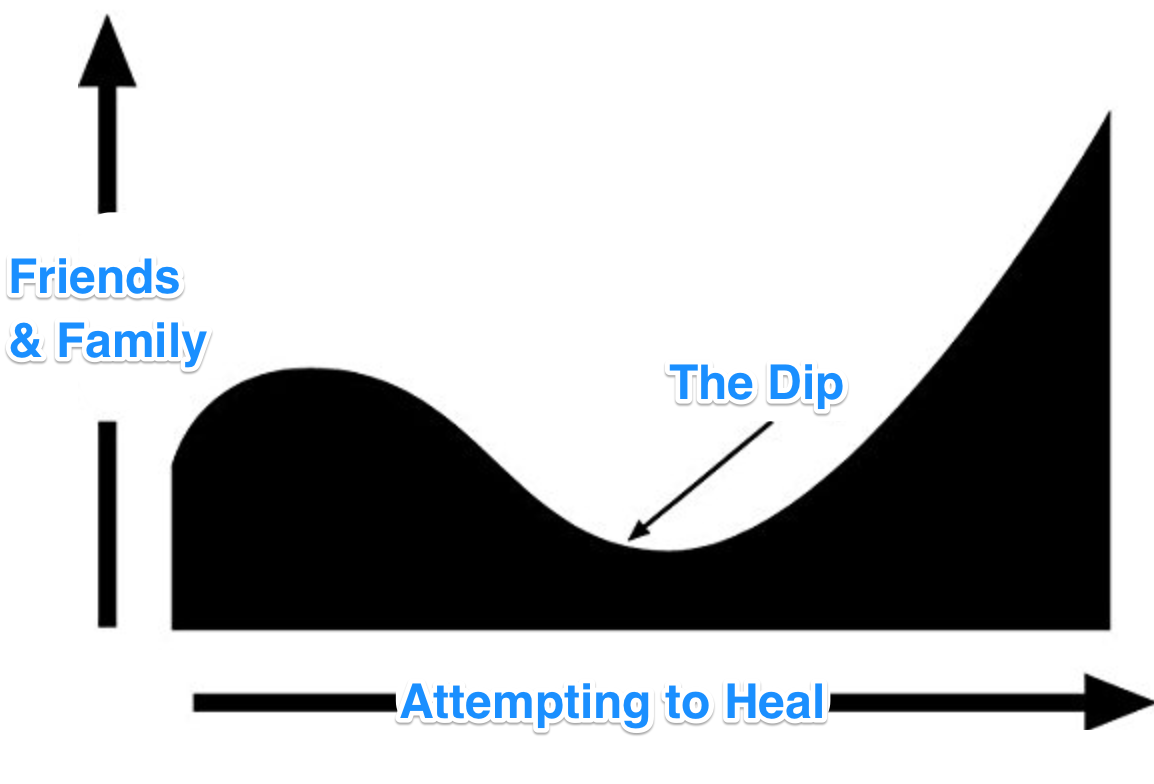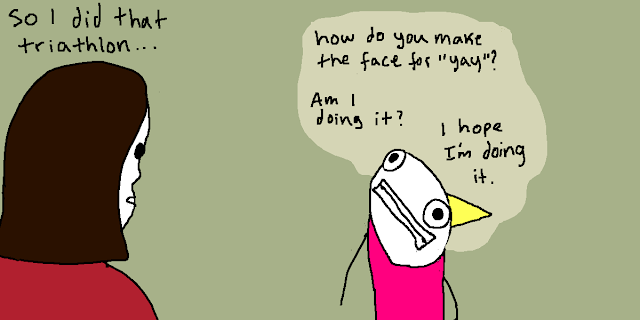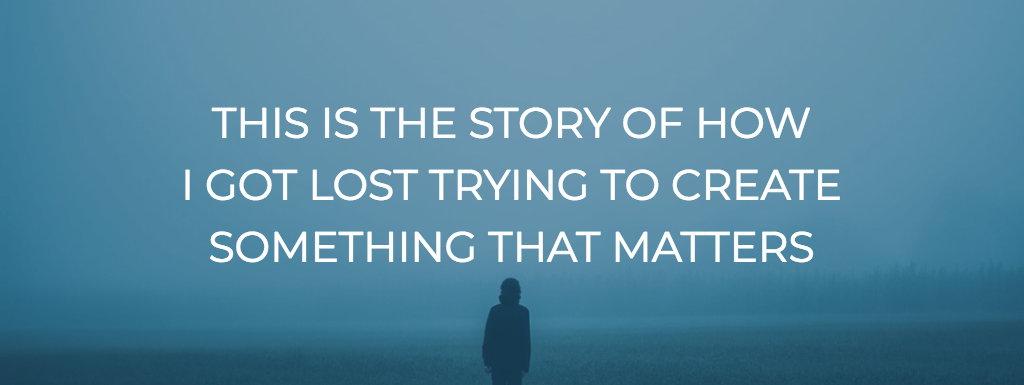My weekly newsletter has always been about business, and yet, I found myself writing again and again on my newsletter about mental health because it matters.
Your mental health matters because YOU matter.
I’ve ended every podcast, YouTube video, and newsletter that I’ve written and recorded with the phrase “Try not to get too lost creating something that matters.”
And I mean that. I meant it originally as my helping you along the path to creating something meaningful. I wanted to help you be less confused.
But I also don’t want to lose you.
My friend recently messaged me and said:
“Just wanted to say if you ever need someone to chat with, happy to do so. Fighting any kind of battle, mental or biz, is almost never done best alone. I know from my own prideful experience.”
And I want to pass that offer on to you. Please reach out.
And if you like long articles, buckle up. You’re in for a treat.
Real Quick: An Important Ask
My only ask is that you bookmark this article to share privately with somebody who is trying to build something important. They might not seem like they’re struggling (and they may not be), but I promise you if they are, they’re probably not going to ask for help and they’ll need something like this at some point.
I know from my own prideful experience…
I called my mom a few months ago (Have you called your mom lately? Call her.) and told her I needed her to check in with me as much as possible. I was starting to realize I wasn’t entirely well and knew I wouldn’t reach out for help.
(Funny, how it’s easier to write it in a newsletter to you than actually talk to somebody face to face. Ah, the internet.)
So I want to compile everything I’ve written up until this point into one article you can share with somebody you care about.
And if this was shared with you, maybe you need it now, and maybe you can tuck it away for the day you do (you will, I promise).
Chapter 1: Noticing (How It Started)
I felt like I was drowning under the weight of it all.
The ambition.
The constant drive.
The endless treadmill of more.
And so I wrote this short article about starting a writing habit. I’ve always processed my emotions best by making things so writing more seemed to make sense.
I made a strong case for writing because you have something to say, writing because you can’t NOT write.
And mostly because I knew it’d lead to write this article next…
Chapter 2: Drowning (and Failing)
In a terrified torrent of emotions in a coffee shop, I churned out this article about self-sabotage, distraction, and an attempt to work out my feelings and get “better” (whatever that means).
Around the same time, I tweeted Brian Clark, somebody who I’ve found to be incredibly thoughtful and sincere and received this reply:
Here's my two cents. You only level up from a "comfort plateau" where things are going well but are a little stale. Settle down and focus on now. You have to master this level before you can strive for another.
— Brian Clark (@BrianClark) March 8, 2018
Brian’s advice was/is perfect.
The problem is when you feel the need to advance financially, spending time mastering “this” level isn’t something you see as an option. So it’s either lose your house to medical bills and out-of-control spending, or just keep sinking a bit deeper and deeper into the water hoping you get reprieve before you drown.
Or at least that’s what I thought my options were.
I spent a month doing personal development work, going through exercises, and trying to figure things out.
It didn’t work.
In fact, things got worse.
Chapter 3: Living (the Wrong Life?)
I felt myself getting more and more lost trying to create something that matters. I know, without a doubt, I’ve been given the advantages I have and all of my gifts because I’m on the Earth to do something important. I was starting to feel down, more and more, and just not myself.
Have you ever looked around, wondered how you got here, wondered who you are, and wondered how you’re ever going to get out?
I was talking to my buddy at work two weeks ago and, having worked from home the previous day, he mentioned that he was stoked I was back in the office.
He commented that I was positive and good to have around.
Even my friends on Twitter echoed the same positive sentiment:
I can tell you that from our interactions you’ve always brought a wonderful optimism and positivity to any group call or forum thread. I can only assume that’s simply because that’s how you naturally show up in the world 🙌🏼
— Barrett Brooks (@BarrettABrooks) June 5, 2018
And this sorta floored me because I’ve found myself apologize to people often lately for being so negative.
- I hung out with my friend the other day and we talked for five hours. I probably spent two of those ranting and complaining about things.
- I feel like every single interaction I have with project managers at work is me complaining and being abrasive.
- I watched Avengers with another buddy and just didn’t have anything positive to talk about.
What.
The.
Actual.
Fuck.
Is.
Wrong.
With.
Me.
Yes, I’m probably tired. Yes, I’m definitely overworked. I’m dieting. I’m training hard.
And then I saw a video from Mark Fischbach (aka Markiplier):
Mark, one of my favorite YouTube creators, talks about dealing with what I’ve been dealing with a lot lately: feeling like I’m barely able to keep my head above water.
In the video, he says:
“You need to see the whole picture. You need to realize that some dreams carry a heavy price but if they’re worth it, then nothing can stop you.” – Mark
I need to keep revisiting what the price is of all this and whether or not I’m willing to pay it. Freedom, very rarely, is free.
“What it took, and what I realized right away, was sacrifice, drive, unyielding passion, sleepless nights, lost friends, fake friends and it took my parents not believing in me it and after I pushed beyond that I started to gain the recognition that I was right all along.” – Mark
It’s unhelpful here to list out all of the times that a person gets beaten down in the process of pursuing a goal (or complain about my own setbacks), but this really resonated with me.
There’s never a point that you “arrive” and find some sort of peace, but I do understand this feeling of just wanting to know you aren’t insane for pursuing something you love.
In my case: financial freedom.
It was also around this time I re-discovered Brene Brown and decided if God was going to keep putting her work in my life, it was time for me to listen.
I grabbed a few books on my Kindle, including hers (<– that’s not an affiliate link. This book will change your life. Buy it), whose title lends itself to Chapter 6 of this article.
(PS – buy Braving the Wilderness. I’ve never highlighted a book as much in my entire life. I’m serious.)
Chapter 4: Questioning (The Two Stories We Tell)
In The Wise Man’s Fear (one of the greatest books I’ve ever read), the main character (Kvothe – said “Qwothe”) has just shared a story with his friends that didn’t entertain them.
This is suspect behavior for Kvothe as he is not only a great storyteller, but hails from a bloodline and culture that emphasizes storytelling and stage skills.
He explains that what he shared with them was something special, a story his people don’t tell outsiders, but tell themselves to remind themselves of things.
“Old beggars in stories are never really old beggars,” Simmon said with a hint of accusation in his voice. “They’re always a witch or a prince or an angel or something.”
“In real life old beggars are almost always old beggars,” I pointed out.
“But I know what kind of story you two are thinking about. Those are stories we tell other people to entertain them. This story is different. It’s one we tell each other.” “Why tell a story if it’s not entertaining?” “To help us remember. To teach us—” I made a vague gesture. “Things.”
Normally, I’m fast asleep mere seconds after my head hits the pillow, but I found myself ruminating on this thought over and over.
What are the stories I tell others? What are the stories I tell myself?
I’ve got my go-to, mildly harrowing stories of trying to start an online business whilst teaching and struggling to be a great husband and father.
I tell those to others because they’re entertaining.
But I want to encourage you (and me) to share more of those internal stories.
Those stories you tell yourself about pain, struggle, and hard-earned lessons.
Share more of those…
—
I believe the phrase “coincidence” is often used to rob us of the power of miracles in our lives.
I see it as a small miracle right at the same time, I watched a video by brilliant filmmaker Jack Harries, documenting his repeated bouts with depression and his call to action that we use social media to not just share unrealistic highlights, but to tell real stories.
Stories that inspire and inform, not just make each other feel bad. Stories that remind us it’s OK not to be the hero depicted in our myths and tales. That it’s OK to just be ourselves.
But, what blew me away video starts with this narration:
There are two stories you can tell: one that is safe and full of regret and one that is risky and full of pride and joy.
I could make this website, my newsletter, and my writing/videos/podcasts all about tips and tricks and how much I’m #success and #winning, but that’s not completely honest.
I dedicated myself to using this website and my small, weekly newsletter to tell risky, but important, stories.
In the video that follows, Jack Harries reads this quote (from what looks to be a great book by Will Storr):

It’s worth a watch:
Chapter 5: Surviving (the Final Dip)
About a month ago (as you’re reading this – I actually wrote this newsletter the day after it happened), Anthony Bourdain committed suicide. I saw quite a few tweets and sentiments being passed around about how important it is that people struggling with mental health seek help and not suffer in silence.
I felt like something was missing from this conversation. There was ONE major thing they weren’t addressing.
If we’re telling others to not hide their demons, let’s also note that by exposing these things by willing to be vulnerable, we’re going to hurt or lose relationships. Many people aren’t capable or prepared to deal with loved ones letting demons out.
“You will put this out there and be rejected, turned away. It certainly speaks to why a lot of people are not comfortable sharing.” – Rand Fishkin (Moz founder) on being vulnerable about depression
People keep talking and talking and talking about the shame and the hiding and nobody actually fucking explains to you about what it’s going to cost to get it out in the open.
Today is a sobering reminder that feelings matter. They're not weak or dramatic or sensitive. Feelings are data telling you what's right or wrong inside. Pay attention to yours and what they're telling you. None of us is immune to our demons. Don't dismiss them. Expose them. https://t.co/6wkD0DgcPW
— Margo Aaron (@margoaaron) June 8, 2018
That's true. When we expose ourselves, we expose those people to the sides of themselves they dont want to see. But the alternative is worse. Those people are not supporting you. They're maintaining a facade that's destructive to you and to themselves.
— Margo Aaron (@margoaaron) June 8, 2018
Nobody tells you that by trying to get this out into the open, you’re going to need to start asking for things: time, space, activity, whatever, to heal a bit and when you start asking for things, people are going to say no.
You’re the jerk who passes on a speaking event.
You’re the jerk who doesn’t deliver the articles on time.
You’re the jerk that needs to go for a run, or just write, instead of going to Target with your family.
To the outside world, healing looks insanely selfish and things may get worse before they get better.
I’d imagine it’s that dip where you lose or harm a few relationships in an effort to get some space to heal, that (maybe?) final drop-off before things can get better that contributes to pushing most people over the edge.

(Yes, Seth Godin’s “Dip” analogy applies here as well)
Some great advice from James Clear:
Habits that have a high rate of return in life:
– sleep 8+ hours each day
– lift weights 3x week
– go for a walk each day
– save at least 10 percent of your income
– read every day
– drink more water and less of everything else
– leave your phone in another room while you work— James Clear (@JamesClear) June 10, 2018
While I know that’s not what James intended, I think it’s important to see it as viewed by other people in my life. To the people who’ve dealt with my manic ups and downs (mostly downs) for the last few months, it probably sounds a lot like this:
“Oh hai there! I’m Brendan and I’m not answering your emails / calls, taking an extra hour per day to work out, spending an hour in the morning writing, not eating what you made for dinner and I’m going to bed early.” – kinda me
It was around this time that I started to realize that things might have to get worse before they get better.
Chapter 6: Braving (My Wilderness)
We reached our flying altitude quicker than I expected. As I hurtled above the clouds, a soft blanket of white beneath me, I saw them: countless criss-crossing jet trails. Unseen highways tread white on blue sky. Fated to fade.
These were my thoughts as I flew to Denver for work.
It reminded me of a story that I want to tell, for a lot of reasons, but most of them being that I’d also been reading too much Brene Brown…
A week prior to my flight, I’d utterly lost my shit. It was the culmination of feeling increasingly underwater (which I wrote about here), projecting increasing outward negativity (which I shared above) and starting to think that maybe something more serious was happening.
In fact, I wasn’t really wondering. I fucking knew something was wrong at this point.
The moment that I realized that I wasn’t well was when I was sitting in a mindfulness training at work, staring out the window… sad.
Just sad.
Really fucking sad.
Interacting with me face to face makes it abundantly clear that I cannot hide my emotions (poker-face level zero). So as this is going on, the only thought that I could hold in my head was the endlessly cycling, “Don’t let them see how you feel. Everybody can tell. Things aren’t okay.”
I just sat and pretended to be okay. Like this (borrow from a brilliant article on depression):

I asked myself a question, much akin to being my own therapist:
“What if nothing changes – your career, your looks, your weight, your relationships, your faith, your entire life – would you be okay?”
No. I don’t think that I would.
And this is how I knew something was amiss. Intellectually, I know that my life is the best that it has ever been.
My life today is what I dreamed of only a few years ago.
I considered to myself, in that moment, something I first thought of a few weeks ago on a train ride home from work. I came to the startling conclusion that there are only three times that I’m genuinely happy:
- When I close new business – being a part of landing a new deal
- When I start a new project – YouTube, this newsletter, etc.
- When I receive high verbal praise – being told I’m wanted or important in some capacity
The first two are so utterly important because they both reflect an vapid joyless feeling that I can’t deny no matter how much recurring revenue I make every month, or how many great projects I’m already apart of.
It is a hedonic treadmill: a relentless pursuit of more.
And so I let those three items continue to bounce around in the tumble-dryer of my mind.
Two days later, my wife and I had disagreed about something that mattered very little at the time (and now, not at all), and the disagreement moved into a territory with her telling me that I’m “never” happy.
Of course, I disagreed.
“Okay,” she conceded. “You’re happy when you make new money, somebody says something nice about you, or you start something new.”
Shit.
Shit shit SHIT.
She’s absolutely right, but how did she know?
First, this is why I married her. She’s brilliant and incredibly perceptive.
Second, was it that obvious?
We hadn’t spoken about it and it was like she was in my head.
She explained to me that I was probably faking it well enough for most people that we see regularly, but for the people who really knew me and loved me deeply, they all knew something was wrong.
Thus began a process that I’m only barely into as I write this to you (still on my flight to Denver), of figuring out how to un-fuck myself as much as possible.
If you take one thing from this newsletter, please let it be this: connect with those around you.
Your real tribe.
Not the people with whom you share a mutual hatred of a perceived “other.”
Find your people who will drive you to chemo or pick up your kids at school. Here’s why:
I feel that my friend Ken is one of those people for me. Thanks be to God, Ken has lived in a very different business ecosystem than I have and has primary access to a wealth of resources that I don’t even know exist.
So when I told him that I was exhausted by all the business gurus of the world saying that we “need to talk more about mental health” without providing actionable advice, he put me in my place.
“Yeah, I just don’t think what you just said is true,” Ken said as he proceeded to rattle off five links to various websites, books, and podcasts by Sherry Walling of ZenFounder.
You see, when you’re a friend (and in Sherry’s case, also a spouse) of an entrepreneur or any person chasing a high level of success along a long enough timeline, you’re going to lose friends to the throes of creating something that matters. (Please note that the use of “friends” and not “friendships” should stand as a stark contrast. She wasn’t losing relationships. She was losing people. For many, that is how this story ends.)
Like my initial discovery of the jet trails, I wonder if what I’m experiencing is something that most never see, hidden behind beautiful, soft clouds. I wonder if we, trying to build something that matters, are flying so high and so fast that it’s scary to be vulnerable. Should we slow down enough to consider what’s really happening to ourselves and our relationships, we’d fall right out of the sky.
I sincerely hope this gives you a different vantage than you’ve had previously, and if you’re flying up here with me, you know you aren’t alone.
Chapter 7: Moving (Forward)
It didn’t go away very quickly, or even at all yet. I’ve had train rides home, listening to the Hamilton soundtrack, barely holding it together for about an hour on the train and in my car.
I don’t know why.
All of my “sadness” emotions are turned up to fucking 11 and everything else is at 0.
And yet I think a mantra that I’ve lived a lot of my adult life by applies here:
It’s easier to turn a moving vehicle.
Continuing to move. Continuing to go forward. That’s the only path.
And so we/I go on.
Mental Health Resources That I’ve Found Helpful:
(If you’re like me, you’ll just open all of these in new tabs right now. Right?)
Braving The Wilderness – Brene Brown (yes, I’m linking to it AGAIN)
The Entrepreneur’s Guide to Keeping Your S**t Together – ZenFounder
Re-defining Success Through Internal Validation — Made Vibrant

Leave a Reply